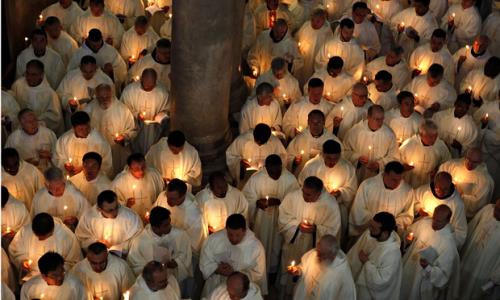Clergy are servants of God, not employees
26 May 2015

Reverend Mark Sharpe claimed he was driven out of his Church of England parish in Worcestershire after his dog was poisoned, his car tyres slashed and his mail tampered with.
Sharpe had earlier moved to Hanley Broadheath in Worcestershire with his wife and four children in 2005, but stepped down in September 2009 saying he had developed health problems as a result of a campaign of harassment and that he had been constructively dismissed. He bought a claim of constructive unfair dismissal against the Bishop of Worcester.
Whether a clergyman can bring a claim against their church is a vexed question.
The traditional view is that it is impossible to do so because the duties owed by a priest or pastor to the church are not contractual or enforceable.
“A pastor is called and accepts the call… He does not devote his working life but his whole life to the church and his religion”, the House of Lords said when considering the employment status of Presbyterian minister, Reverand Davies, in 1986.
“His duties are defined and his activities are dictated not by contract but by conscience. He is a servant of God.”
The House of Lords was resolute; a clergyman was not an employee.
Sharpe’s fate was decided by the English Court of Appeal this month and suffered the same fate as Davies did in 1986.
The issue of whether a priest or minister is an employee has come before the courts of New Zealand on a number of occasions.
The courts in our common law jurisdiction have consistently rejected claims from disaffected clergy on the grounds that they are not employees.
John Mabon was inducted into a shared ministry between the Anglican Parish of Holy Trinity Woodville and the Union Parish of St James Woodville. He was shown the door by the churches and took a case to our Court of Appeal.
The Court of Appeal was not as staunch in its views as the House of Lords. It stated that “it is necessary to read cases in other jurisdictions with care and discrimination, particularly where the overhang of history and culture may affect perceptions of what it takes to create or negative intentions to enter into legal relations in a particular context. Unlike England and Scotland, New Zealand does not have a national established church. Ministers of various faith and denominations do not hold offices protected by legislation.”
The court also considered that it should consider the matter through a “contemporary lens”. The court observed that the concept of “calling” was important to this issue but not determinative.
Despite this, churches and their priests and ministers have always held a special place in British and New Zealand society.
Worcestershire is a long way from Woodville but the respectful approach of the courts to the church stands out in both villages. Davies, Mabon and Sharpe all failed in the courts.
The New Zealand Court of Appeal observed that ecclesiastical disputes, where matters of faith and doctrine are at issue, are matters best left to the church.
At the end of the day, the court held that the regulations that Mabon was appointed under demonstrated that there was no intention to create legal relations and to form a contract. Our court determined that an Anglican minister was not an employee of the church.
Mabon’s case was decided under the now repealed Employment Contracts Act 1991 which encouraged a more contractual approach.
A decade later, employment law emphasises more the “real nature” of the working relationship.
This may still consider the intentionof the parties, but will also consider other matters. The court could take the view that the church’s ordinances could not contract out of the Employment Relations Act and that a clergyman was an employee.
Another point to consider is that dispute resolution procedures are relatively new, historically speaking, for employees.
The privileged status given to churches, in terms of the clergy being denied the ability to take employment proceedings against the church, is only likely to if they continue within their ecclesiastical jurisdiction reasonable and fair dispute resolution procedures.
If they don’t, sooner or later the courts are likely to take a more sympathetic view to affected clergy.
Clergy are called to God. They serve God. A shift in philosophy to clergy being employees of the church may still be some way off I suspect.


